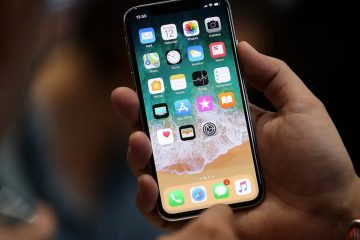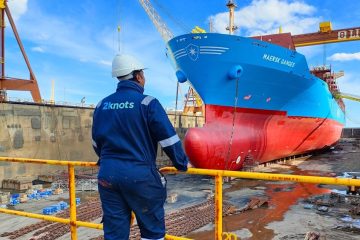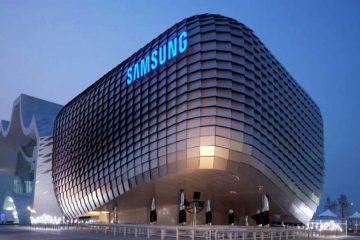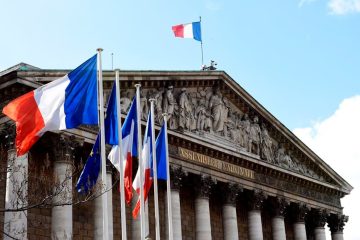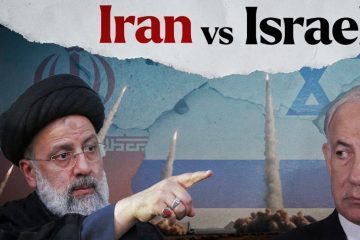With Beijing threatening, Taiwan watches Trump with anxiety.
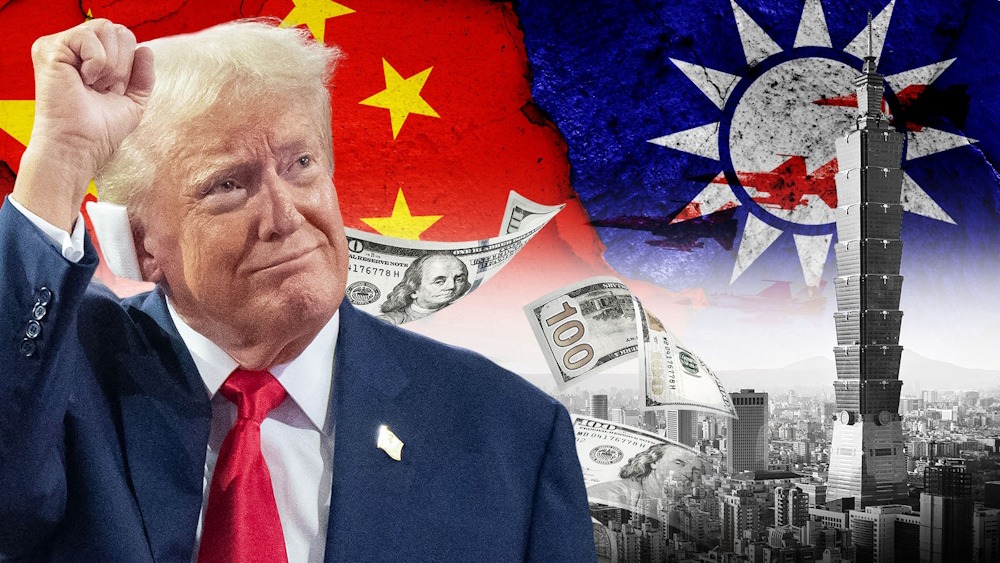
Donald Trump has provided Taiwan with numerous grounds for concern. The president-elect urged Taiwan throughout his election campaign to substantially increase its defense spending in response to the escalating threat posed by China. He charged Taiwan’s semiconductor manufacturers—a crucial sector representing 15% of gross domestic product—with appropriating American employment opportunities. He welcomed into his inner circle the billionaire Elon Musk, who has ridiculed Taiwan’s resolve to uphold its autonomy. He proposed that his own reputation serves as a sufficient deterrent against any potential invasion by Chinese leader Xi Jinping.
Concurrently, Beijing initiated provocative military drills, prompting a critical inquiry for the island: How would Trump respond in the event of a Chinese incursion into Taiwan? A segment of the Taiwanese populace argues that the preservation of its self-governing democratic status is jeopardized, contending that it cannot meet the defense expenditure demands put forth by Trump, and that it risks deterioration amidst the tensions of a U.S.-China trade conflict. Beijing asserts sovereignty over the island and has not dismissed the possibility of employing military action to assert its claim. Taiwan’s leadership is accentuating the optimistic aspects. “I am confident that the enduring partnership between Taiwan and the United States will continue to serve as a crucial pillar of stability in the region,” President Lai Ching-te remarked on Wednesday following a briefing regarding anticipated developments from the White House after Trump’s return.
Washington serves as Taipei’s principal supporter, providing billions of dollars in arms to bolster the island’s self-defense capabilities. While the United States is legally bound to supply arms, it upholds a stance of “strategic ambiguity” regarding the potential military response to a Chinese invasion. Lai, in a meticulously orchestrated inaugural journey as president, intends to visit Taipei’s official allies in the Pacific and is anticipated to transit through certain U.S. territories, as per an individual acquainted with his travel arrangements. Taipei and Washington frequently characterize these transits as standard procedure; nonetheless, Beijing, which has historically employed military exercises to express discontent over such visits by Taiwanese officials, would interpret any journey to the U.S., including a mere stopover, as a deliberate affront.
Taiwanese officials have expressed a degree of reassurance regarding Trump’s early appointments and his track record during his tenure in the White House. Throughout the initial term of the Trump administration, Taiwanese officials witnessed a significant escalation in support from Washington, particularly in terms of arms sales and diplomatic engagement. The president-elect has appointed China hawks Sen. Marco Rubio as secretary of state and Rep. Michael Waltz as national security adviser, both of whom advocate for a more assertive defense posture towards Beijing.
“We hold a positive outlook regarding any initiatives or appointments for individuals who advocate for Taiwan,” stated Defense Minister Wellington Koo. In the corridors of power, high-ranking officials in Taiwan conveyed a sense of apprehension regarding the potential reactions of China to a more aggressive U.S. administration. “Uncertainty looms regarding China’s potential escalation of pressure and intimidation tactics directed at Taiwan,” remarked Yeh Yao-yuan, a political scientist at the University of St. Thomas in Texas, who provided a briefing to the president this week in Taipei. “This is the primary concern of the Lai administration.”
Taiwan should prepare for significant economic repercussions should Trump implement his proposed 60% tariff on Chinese imports, according to Chen Ming-chi, a former security adviser to the previous administration of Tsai Ing-wen. “While pessimism is unwarranted, optimism appears equally misplaced,” Chen remarked regarding Trump’s potential return.
In an October discussion with The Wall Street Journal’s editorial board, Trump articulated his stance on a potential Chinese invasion of Taiwan, suggesting that his response would involve imposing tariffs or cutting trade ties, while asserting that military intervention to counter a blockade would be unwarranted. Trump has asserted that Taiwan ought to compensate the U.S. for its defense services. “In essence, we operate much like an insurance firm.” “Taiwan does not provide us with any benefits,” he remarked during a July interview with Bloomberg Businessweek.
Taiwan ought to elevate its military expenditure to a minimum of 10% of GDP, he remarked to the Washington Post, in a discussion that stirred apprehension across Taipei. Taiwan’s military expenditure stands at 2.45% of GDP, a figure that lags behind Singapore’s 2.8% and South Korea’s 2.7%, the latter of which enjoys the advantage of a substantial U.S. military presence. Authorities in Taiwan report significant advancements in the enhancement of the island’s self-defense capabilities, highlighting an uptick in military expenditure over the last eight years and a recent extension of compulsory military service from four months to one year. Koo, the defense minister, asserts that Taiwan will persist in its gradual augmentation of the defense budget.
Trump’s focus remains unaltered. “There is a prevailing sentiment among Trump and his associates that U.S. allies are insufficiently contributing to their own defense and security,” remarked David Sacks, an Asia-focused fellow at the Council on Foreign Relations. “In Washington, the proportion of GDP is often regarded as an indicator of one’s seriousness,” he stated. Chieh Chung, an assistant professor at Tamkang University in Taiwan, remarked that achieving the military spending target of 5% of GDP, as advocated by certain prominent Republicans, is not feasible in the near term.
“This would significantly impede funding for education, social welfare, transportation infrastructure, and economic development,” Chieh remarked. For Lai, who assumed office in May, maintaining favorable relations with Washington may prove essential for his political survival. The Democratic Progressive Party has maintained its grip on power across three successive U.S. administrations—Obama, Trump, and Biden—largely due to public backing for its stance on Beijing: resolute in rejecting China’s claims to the island while exercising caution in its relations. However, the DPP does not possess the legislative majority necessary to enact any budget it desires.
As the new team around Trump began to coalesce last week, Taiwan Premier Cho Jung-tai initiated a task force aimed at examining strategies for collaboration. “The incoming individuals will undoubtedly introduce novel methodologies,” he stated. “We will determine the means to enhance collaboration in technology, trade, and various other domains.”
The emergence of Rubio and Waltz was viewed as a hopeful development—even as Beijing expressed relief at the absence of Mike Pompeo, a former Trump secretary of state known for his strong support of Taiwan. In recent years, Pompeo has advocated for U.S. recognition of Taiwan as an independent state, marking a significant departure from the policy established under President Jimmy Carter in 1979, when the U.S. acknowledged the government in Beijing and severed official relations with Taipei.
Two years prior, Waltz made a visit to Taiwan, where he engaged with the then-President Tsai. At a House Foreign Affairs Committee hearing last year, he advocated for the expedited provision of postponed U.S. weapon systems to Taiwan, following assertions from U.S. officials that Xi had directed the Chinese military to prepare for a potential invasion of Taiwan by 2027. A sequence of U.S. arms shipments is scheduled for delivery between 2027 and 2029, he remarked, noting, “From a deterrent perspective, that timeline is insufficient.”
Authorities in Taiwan have expressed ambiguity regarding the implications of Musk’s involvement. The CEO of Tesla has drawn scrutiny due to his business connections in China and his political stance, notably characterizing Taiwan as akin to Hawaii in relation to China. Starlink, his satellite internet provider, has struggled to penetrate the Taiwan market, even as the island faces a pressing demand for secure connectivity. In Taiwan, Sacks remarked, “the presence of Elon Musk is significant.”
Nonetheless, officials in Taipei are projecting a sense of assurance. A Taiwanese security official remarked, “The president who initiated it all has returned to the helm,” alluding to the U.S.-China trade conflict that emerged during the initial Trump administration. “In all honesty, the pressure on Beijing should be considerably greater than that which we experience.”

